From Oct. 3 to Oct. 4, nominated candidates for the upcoming students’ council elections all set up in the SAMU building between 11 a.m. to 2 p.m. MacEwan students were able to attend “Meet the Candidates” and learn more about the nominees for the student council elections.
Students can expect the voting poll to open Oct. 11 and close Oct. 12. This year, 13 candidates are running for student council; some of which are running for re-election. Between the two days, the nominees set up tables where they met with students and explained their platform and their plans for tackling certain student issues.
There were many common goals and concerns among the candidates, but many candidates proved to have their own vision and goals for SAMU and MacEwan itself.
Delaney Huhtala
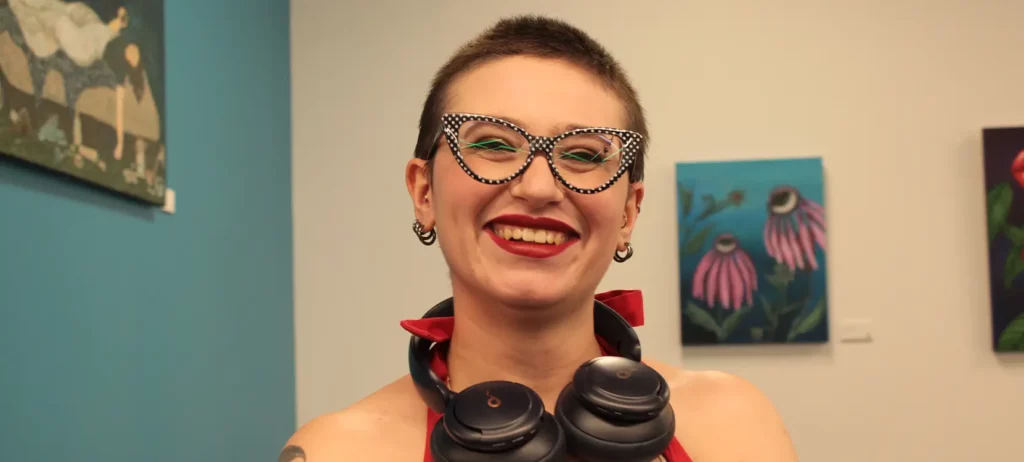
Delaney Huhtala is a third-year science student with a major in biology and a chemistry in chemistry. Their primary goal is promoting SAMU and MacEwan services and encouraging more students to join volunteer-led programs.
Huhtala suggests that increasing student engagement with MacEwan’s services and programs requires more promotion. They say, “I think it’s really important, too, to have events related to those specific programmings because I think events are just a great way to publicize it.”
As a student councillor, Huhtala would endorse more volunteer opportunities for students, particularly in regards to academics.
“I definitely think [current] volunteering opportunities [are] a bit of a gap, especially in the academic area,” Huhtala says. “But, I think if we worked more with the library to integrate more programs, I think that would really help students because there seems to be a lot more we can do with the library.”
Chioma Uzor
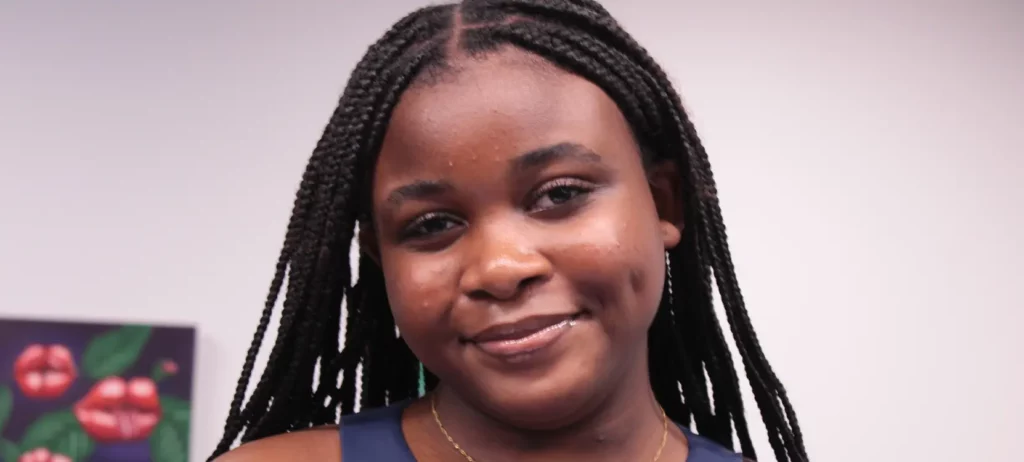
Chioma Uzor made the decision to run for student council in order to tackle student issues like community engagement, resources for mental health, and on-campus diversity and inclusion. Uzor is a fourth-year science student and is majoring in psychology and minoring in biology. One of the ways she plans to promote diversity and inclusion is by promoting more opportunities for students from marginalized communities; this promotion would also include existing programs and opportunities that students may not know about.
“A lot of students don’t know about [these opportunities] because it’s not being promoted enough,” Uzor says.
Along with opportunities, Uzor says that she would like to promote diversity-related student groups and organizations such as the Black Students’ Alliance and the Centre for Sexual and Gender Diversity. She suggests that it’s a matter of informing students of the resources and communities available to them.
As for mental health support, Uzor plans to promote the campus’s Wellness and Psychological services. According to Uzor, students needing mental health support may not necessarily know where to go or how to access the help they need.
Another way she wants to tackle mental health is by encouraging students to join clubs and groups. “I want to see if there’s ways to have more events and basically have students bond together, find a group they belong to, or just [get] along with other students.”
Ian Kamenwa
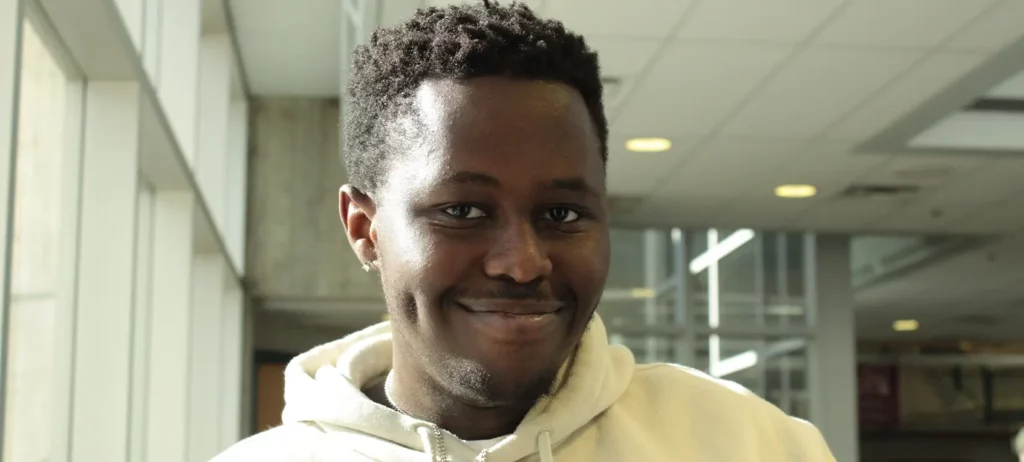
Ian Kamenwa made the decision to run for students’ council because of his previous experience as a student councillor in both high school and junior high. Kamenwa is a fourth-year political science major whose main goal is to increase student engagement with student council and SAMU.
As student councillor, Kamenwa would seek out student feedback to assess what issues students care about. “So, [we should] definitely do more polling, but it’s kind of like getting an idea of what people are actually thinking about,” says Kamenwa, “So, mental health, affordability, tuition, etc…”
Inspired by the University of Alberta’s electoral system, Kamenwa suggests that the students’ council should adopt a representative electoral system in which student councillors are elected according to the number of enrolled students in each program.
His primary goal is to encourage students to speak with their representatives about concerns or topics that they want addressed. If he were to be elected, he would attempt to accurately represent MacEwan students as well as their needs and opinions.
Kamenwa says, “I’m not being elected to voice my opinions, only opinions of my fellow students.”
Nhi Phan
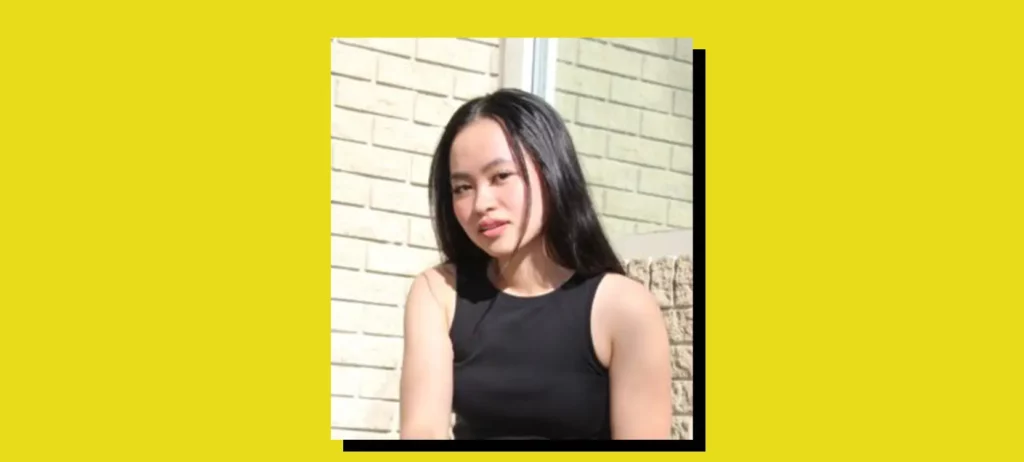
Nhi Phan, a fourth-year computer science major, is looking to be re-elected for students’ council. In her previous term as a student councillor, Phan focused on issues specific to international students. If re-elected, she would continue to focus on representing international students and issues specific to them.
This year, Phan hopes to address inflation and its impact on students, especially for international students. “Some international students I’ve talked to in my student group [are] having problems paying rent . . .,” says Phan. “That’s something I want to bring more awareness about.”
Another issue that Phan wants to tackle is the lack of student awareness on programs, services, and clubs. She says that students need to be made aware of everything SAMU has to offer such as the Pantry, Peer Support, and Breakfast Club.
In regards to student engagement, Phan says that promotion and tabling should be done all over campus, not just in the SAMU building.
Based on her own assessment of her previous work as a councillor, Phan says that she hopes that she can continue to represent students even with a new executive committee. “I want to continue to keep them accountable for their job,” she says, “and make them keep up with the promises that they [offered] on their platform.”
Alem Tesfay
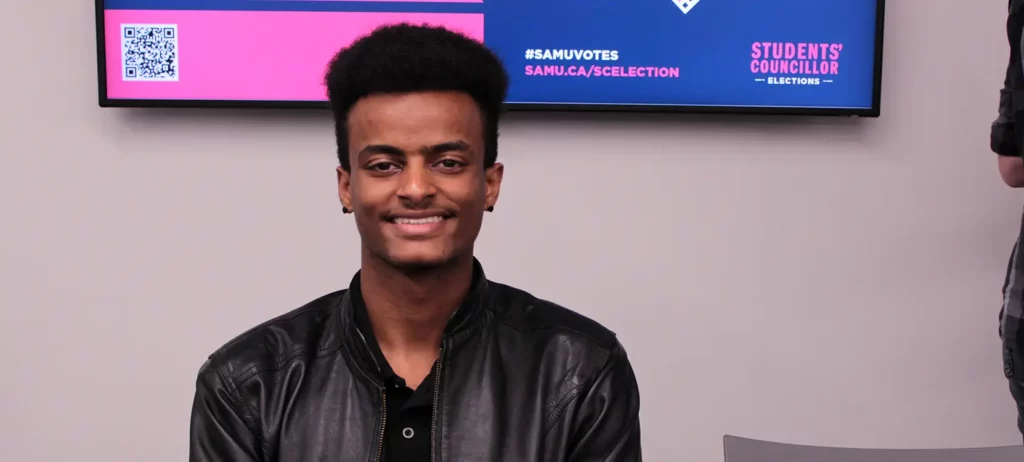
Alem Tesfay is eager to be re-elected as a student councillor and continue making progress on some plans that he envisions for SAMU and MacEwan.
“I have a lot of work to do this year,” says Tesfay. The third-year commerce student’s main goals is to foster a thriving campus environment and encourage students to engage with campus events, opportunities, and clubs.
In particular, Tesfay would like to see SAMU promote on-campus sports events. “I was talking to a student in one of my classes, and he’s a hockey student . . . and he said that one of the things affecting team morale is the lack of students attending the games.” As a councillor, Tesfay would endorse the promotion of MacEwan’s athletics teams and games.
He hopes that better morale will help MacEwan’s teams win more games as well as liven up the campus culture. Tesfay would also like to improve campus culture by planning campus events that are accessible to all students, particularly those who might not feel comfortable around the culture of alcohol drinking at events.
Nathan Poon
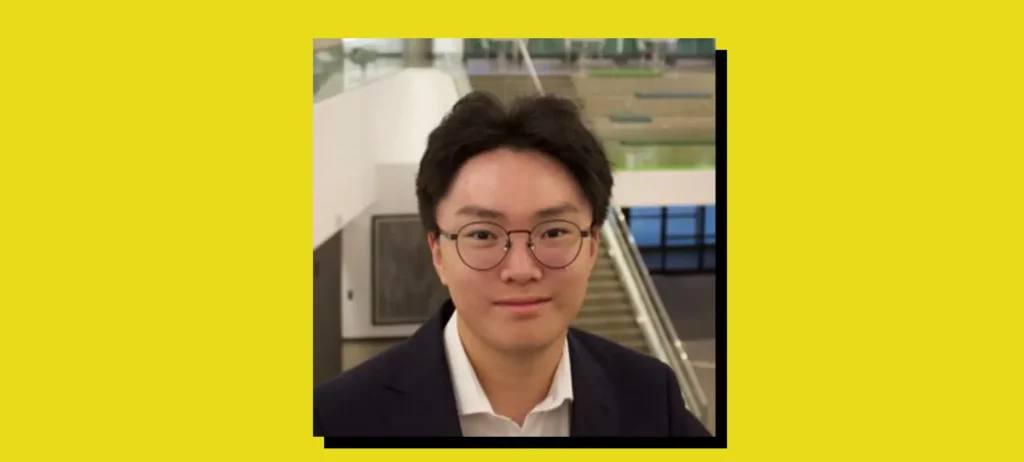
In February, Nathan Poon ran for the executive committee. Although he was not elected, he found that his campaign helped him learn about students and their needs. The experience inspired him to apply for the students’ council election.
“There’s a whole plethora of issues that students kind of talked to me about,” says Poon. “I think the number one issue was affordability.” With an increase to tuition, Poon says that his primary focus is addressing affordability.
He would also like to continue to advocate for the textbook transparency program which would allow students to see what textbooks are required for classes prior to enrolling in them. Poon says that he would also like to help students get professional experience.
“We need to make sure that we give our students the stepping stool to allow them to set themselves apart from a similar person with the exact same degree,” says Poon. “We need to give our students the upper hand so when they graduate, they have the experience and job placements.”
Poon also believes that students and other councillors underestimate the extent to which the students’ council can represent and voice the concerns of students to the executive committee.
Sonia Yusuf

Sonia Yusuf’s motivation to run for students’ council comes from the desire to encourage students to engage with MacEwan and advocate for the issues that they care about such as tuition, benefits, student groups, and other programs.
Yusuf’s platform includes the advocacy of sustainability. If elected, Yusuf would work on implementing composting on campus and teaching students how to properly dispose of waste, compost, and recycle.
Additionally, Yusuf would like to see SAMU involve more diverse voices from different programs. She says, “I’ve noticed that we have a higher percentage of political science students [in governance], but we need more psychology students, we need more finance students, we need more nursing students.” Yusuf says that more representation in student government, the councillors and the executive committee can better respond to student needs.
Another issue that she would like to address as a councillor is affordability. Last year, the former president of Myles Dykes pushed on capping tuition; this project is something that Yusuf would like to continue.
“Because tuition, as it is, is a pretty institutional cost — that is unavoidable — but if we work together, we can create other resources.”
Maade Okai
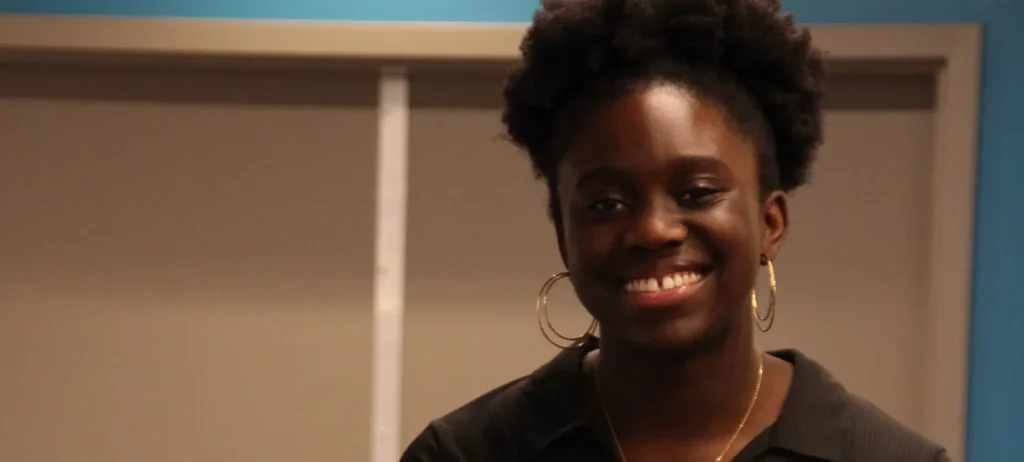
Maade Okai is in her second year of mathematical sciences with a minor in computer science at MacEwan University. This year, she is running for the first time in the Students’ Council election and plans to get students more aware of the many services and opportunities that SAMU offers.
While this is her first time in student politics at the university, Okai is no stranger to leadership and says she has been part of students’ councils since Junior High. Those familiar with SAMU might also recognize Okai as a familiar face as she’s volunteered with Fall Fest, Safewalk, the Pantry and other SAMU events and services.
If elected, Okai says she’ll be pushing hard to get more students involved with SAMU.
“I feel like if people would use [SAMU] services more, their university life would just be so much better,” she says.
Layal Zidan
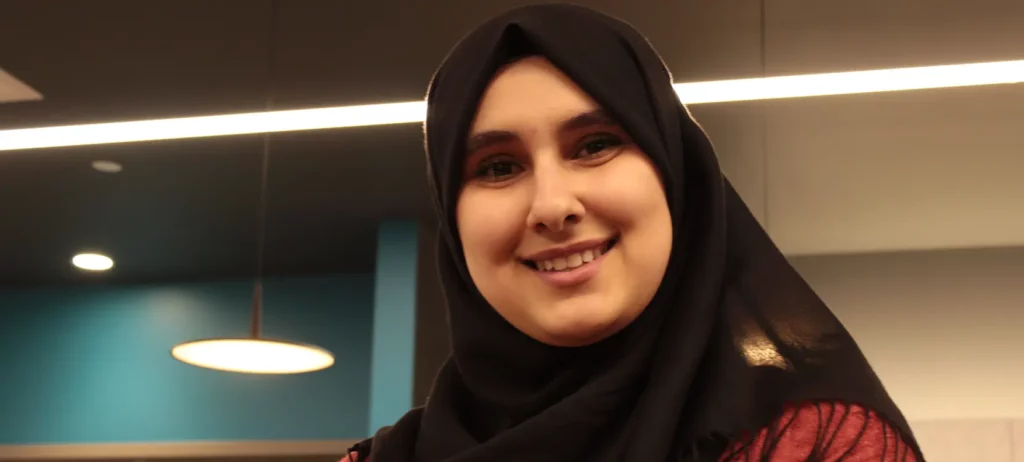
Layal Zidan first got involved with the Students’ Council when two members of the SAMU Executive Committee at the time encouraged her to go for it. She ended up not running in her first year as she wasn’t quite sure what student life was like and what students might be looking for in leadership.
“I didn’t really understand what students’ council was about, but I felt since I had moved to Canada recently that I really wanted to engage. I really wanted to learn more, and I felt like I really wanted to give back,” she says.
“My second year I was all in, I learned more about SAMU, what SAMU offers, and what SAMU stood for,” Zidan says. “
Now running for re-election, Zidan wants to help spread the word about what SAMU does for students and help champion the concerns of underrepresented STEM students. She also wants to help hold the SAMU executives accountable, especially when it comes to the budget.
Mayank Kaushik
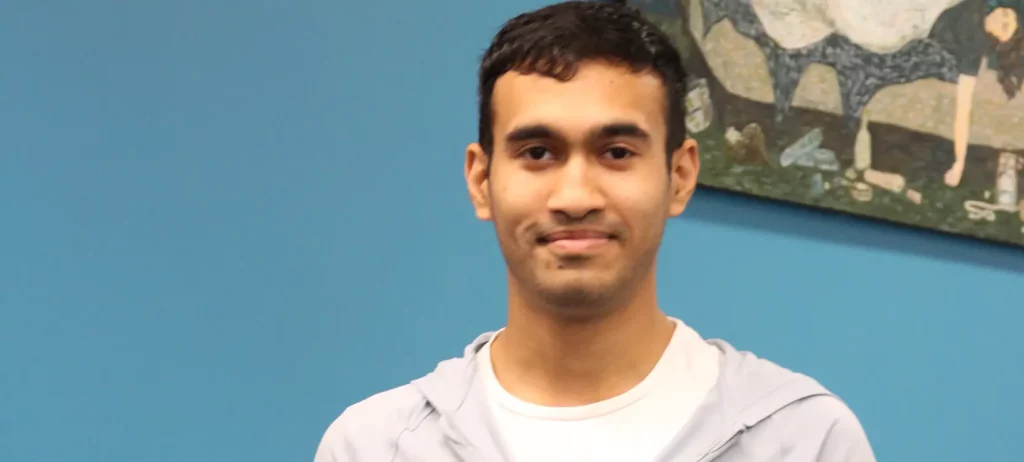
When asked about why he was running for students’ council, Mayank says that it’s partly because he wants to help get Nursing students like himself more engaged and better represented in SAMU.
“I’ve seen so many councillors there represent different faculties and different areas of student life; student life is my main priority, and I think it should be our main priority,” he says.
“I’ve not noticed any nursing student in the students’ council since my two years of being in this program. I feel that we are very cohesive, and we support each other. I wish to bring that together here in SAMU and Students’ Council.”
Another area of focus for Mayank is also providing more events and services that help students who are transitioning out of university. He wants to see more work-focused workshops and events to help capture the interest of students who are eager to get into the workforce.
“I think SAMU does that, I wish to encourage more of that, and also the collaboration of different groups.”
Joehn Torres
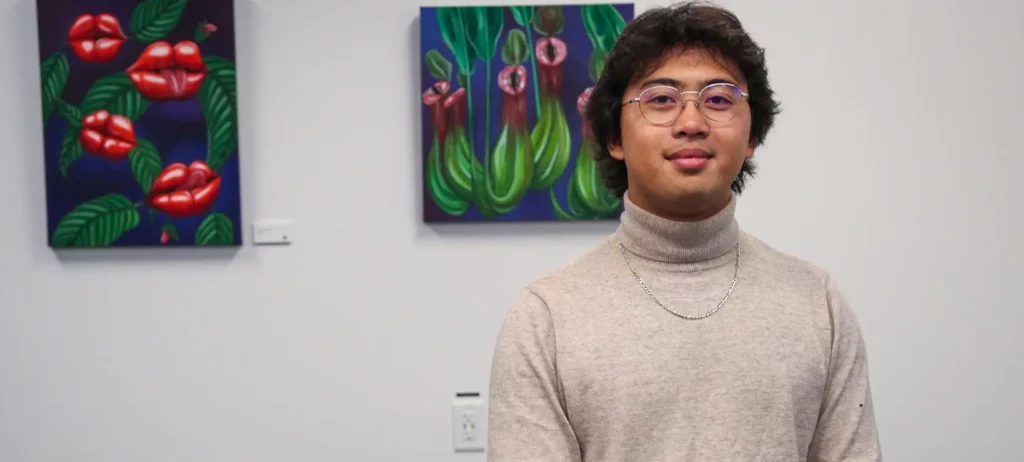
Joehn Torres, who has been a students’ councillor before, is running for the first time after having been appointed for his first term. Torres, a second-year political science and entrepreneurship student, says he wants people to remember that while he and his colleagues may get the title of councillor, the important thing is that “students” come first.
“I want [students] to be aware that I’m not on some higher pedestal,” Torres says. “They can always come up to me, no matter the time or place.”
Like many other councillors, Torres wants to get the students involved and in the know about SAMU and get more students involved in governance and student life.
“At University, people pay a lot of money to be here. But all they do is come in, they show up to class, and they go home or study.”
Torres says that post-secondary is also a chance for students to get engaged, make friends, have new experiences, and grow as people. He plans to get students involved by engaging with the student body directly and physically.
“Just being out there, coming to events, volunteering, speaking with people in the libraries, the hallways, wherever people congregate.”
Inder Singh
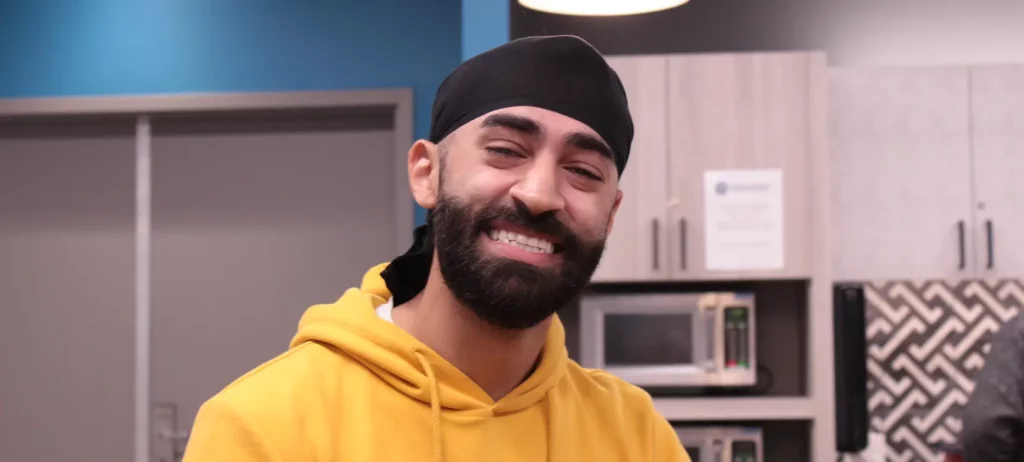
As a sixth-year honours biology student minoring in psychology, Inder Singh has had a lot of experience with both MacEwan and SAMU. He’s been a volunteer with SAMU’s Peer Support MacEwan’s Peer Health Education Team and was also the well-being assistant for SAMU.
With his background in providing mental health support and planning events, Singh says he plans to bring his experience to the role of Students’ Councillor.
“I don’t want to lie to you and be like, I want to talk about textbook costs and rising tuition fees because I don’t have a lot of experience with that,” he says. “I have a lot of experience, however, with mental health advocacy and community engagement.”
Something that struck a nerve with Singh was when he was working as a well-being assistant and was planning events — nobody would show up.
“That’s a very common concern for different organizations on campus.”
This led to Singh trying new strategies that involved direct community engagement and getting more volunteers, which bolstered his event’s numbers.
“No more posters, no more T.V. screens, nothing like that. Actual one-on-one conversations with students,” says Singh.
The Griff was unable to receive a response from candidate Abby Beka by the time of publishing.
Photography by Liam Newbigging, Joelle Fagan, and Sam Poier

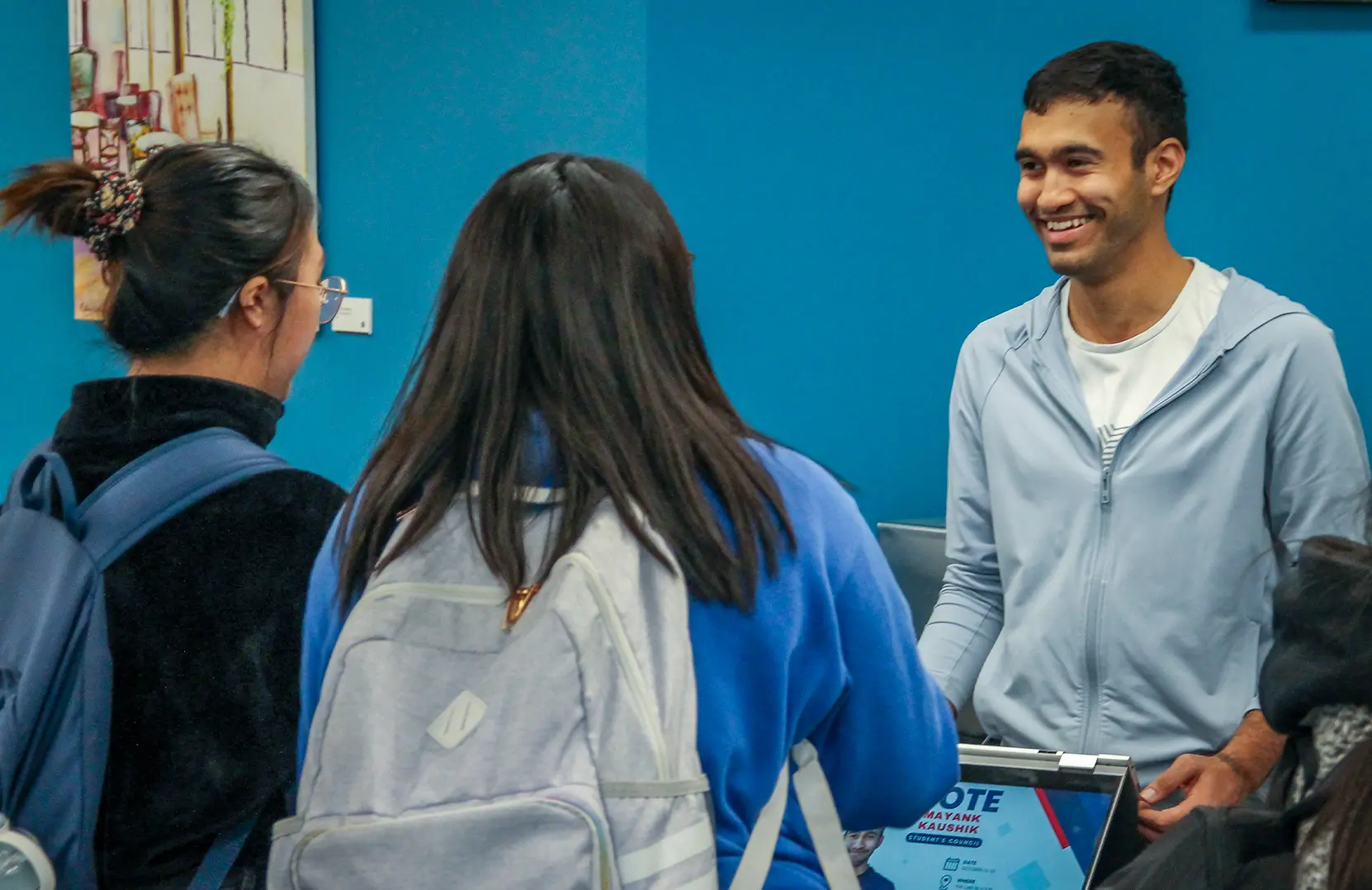
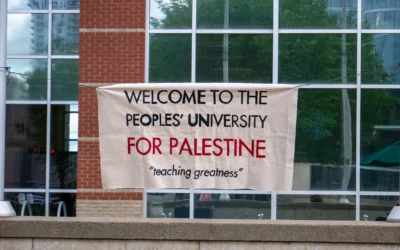
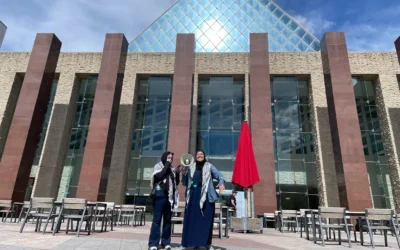

0 Comments